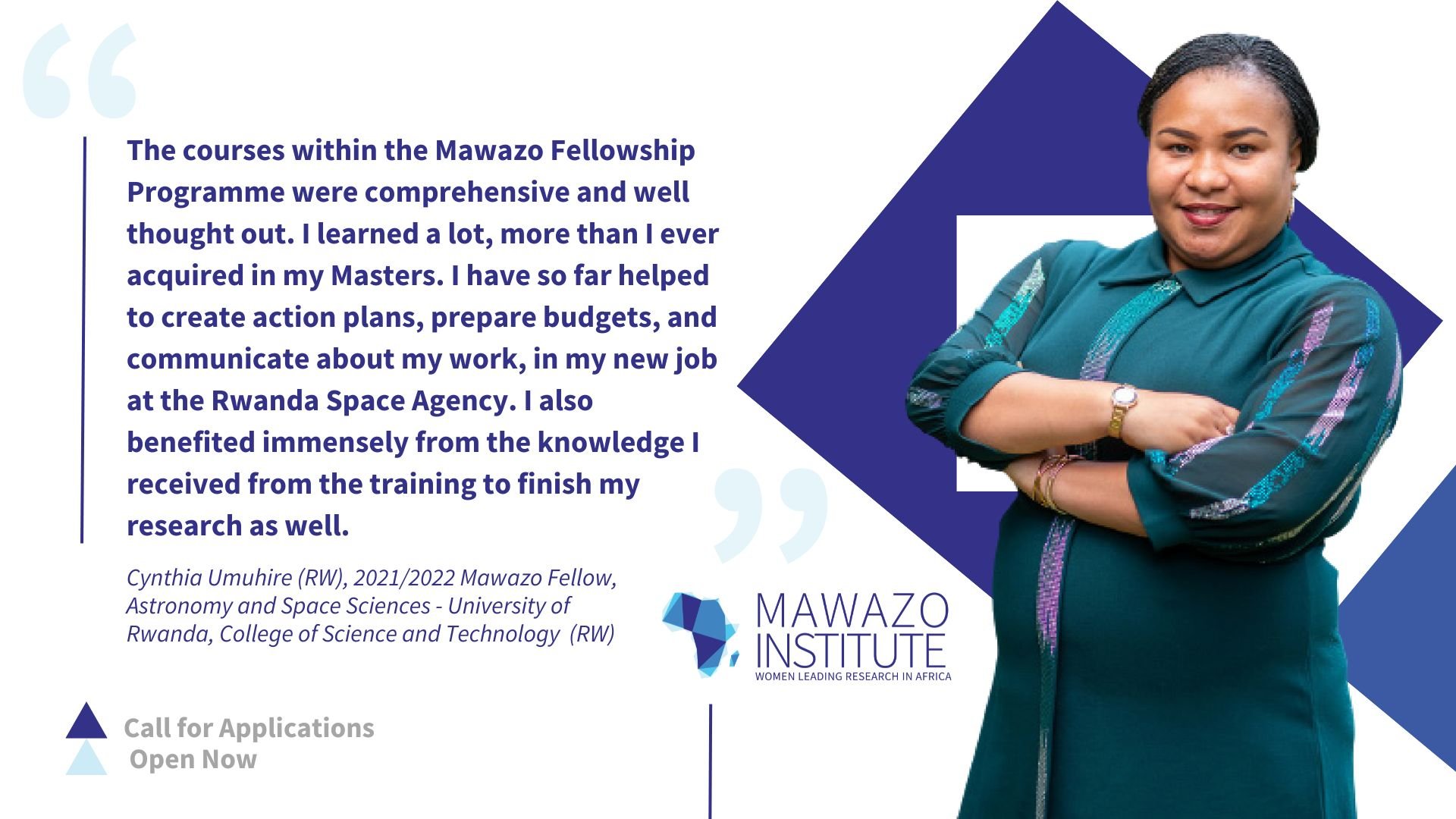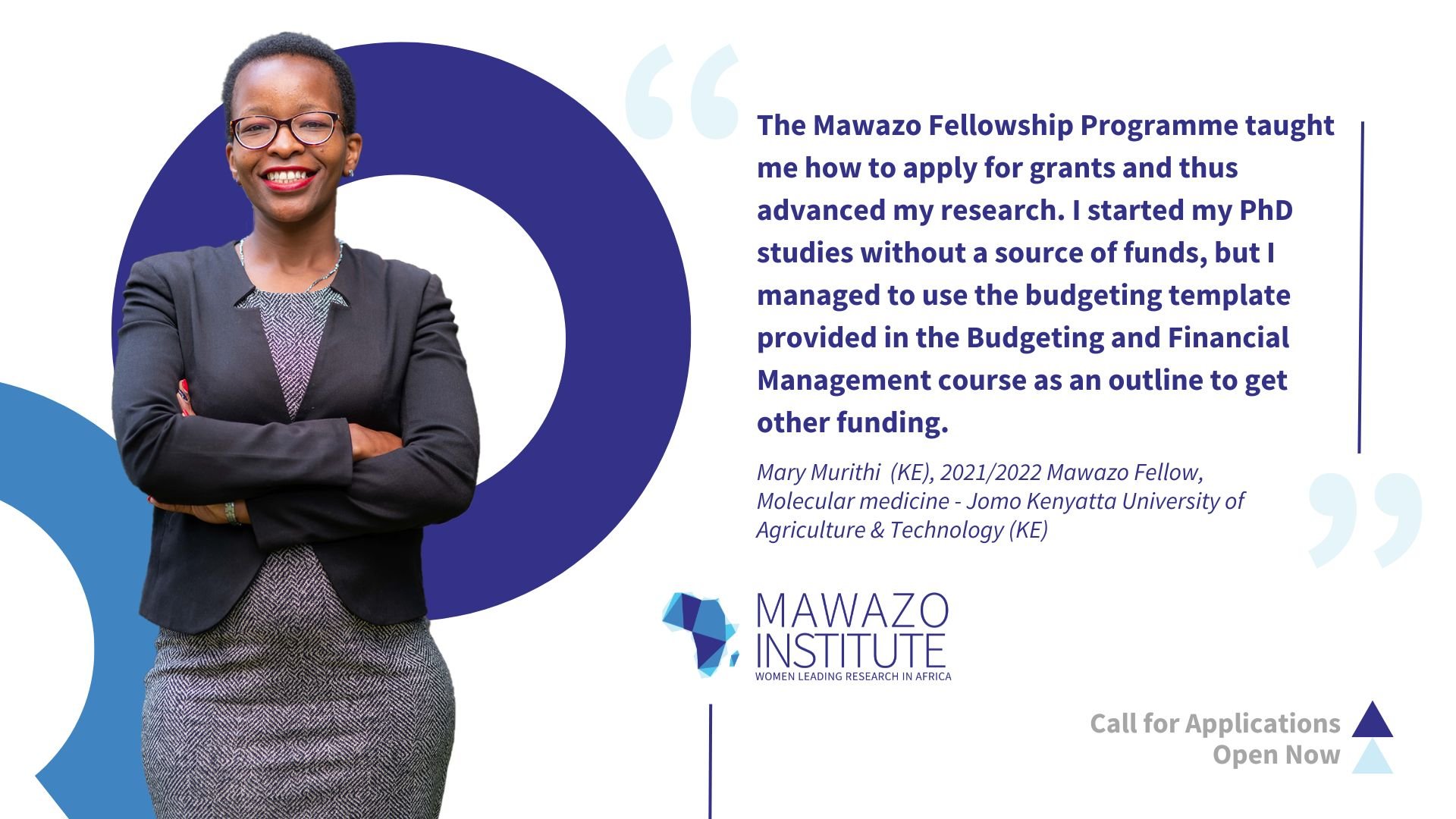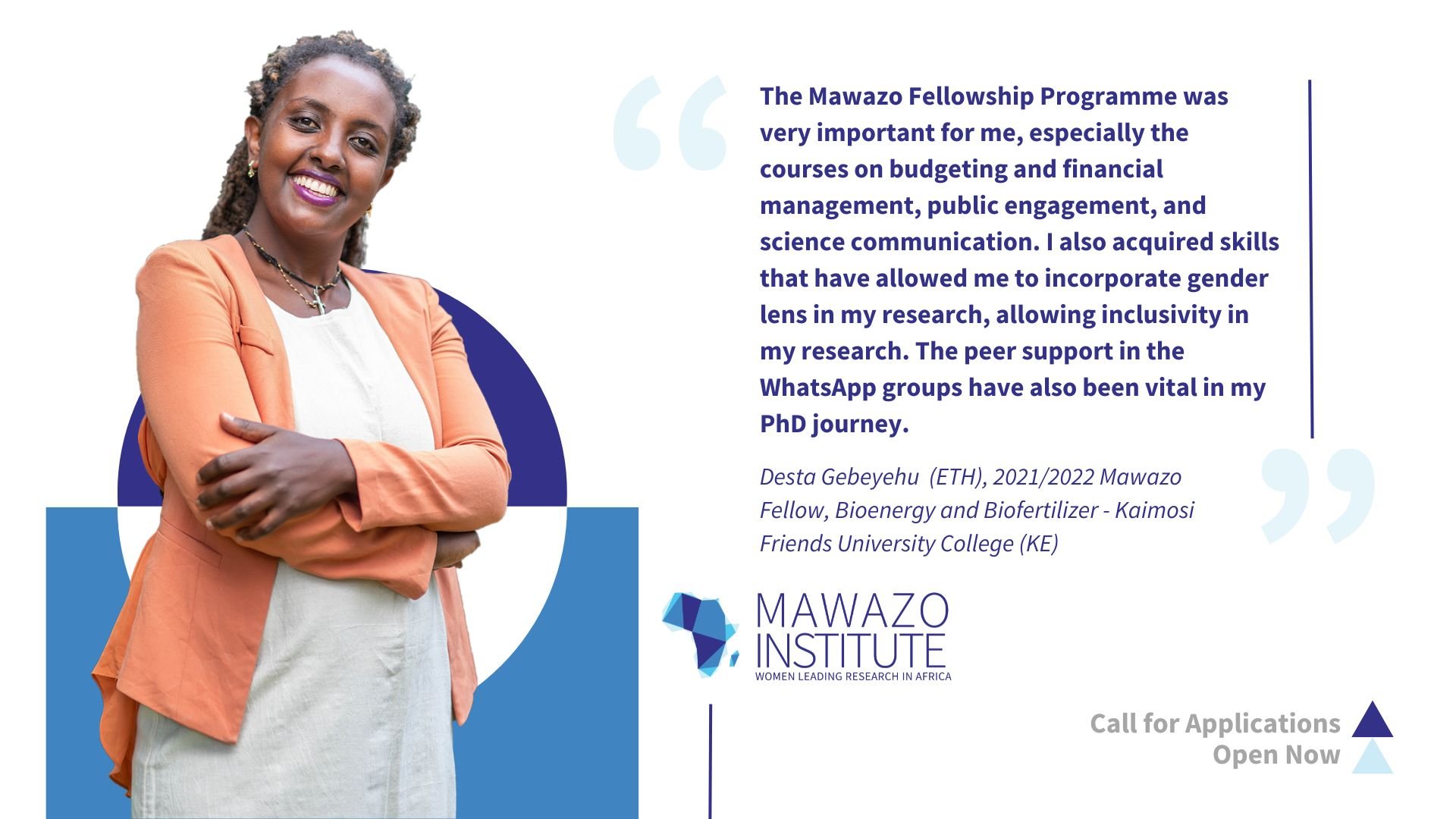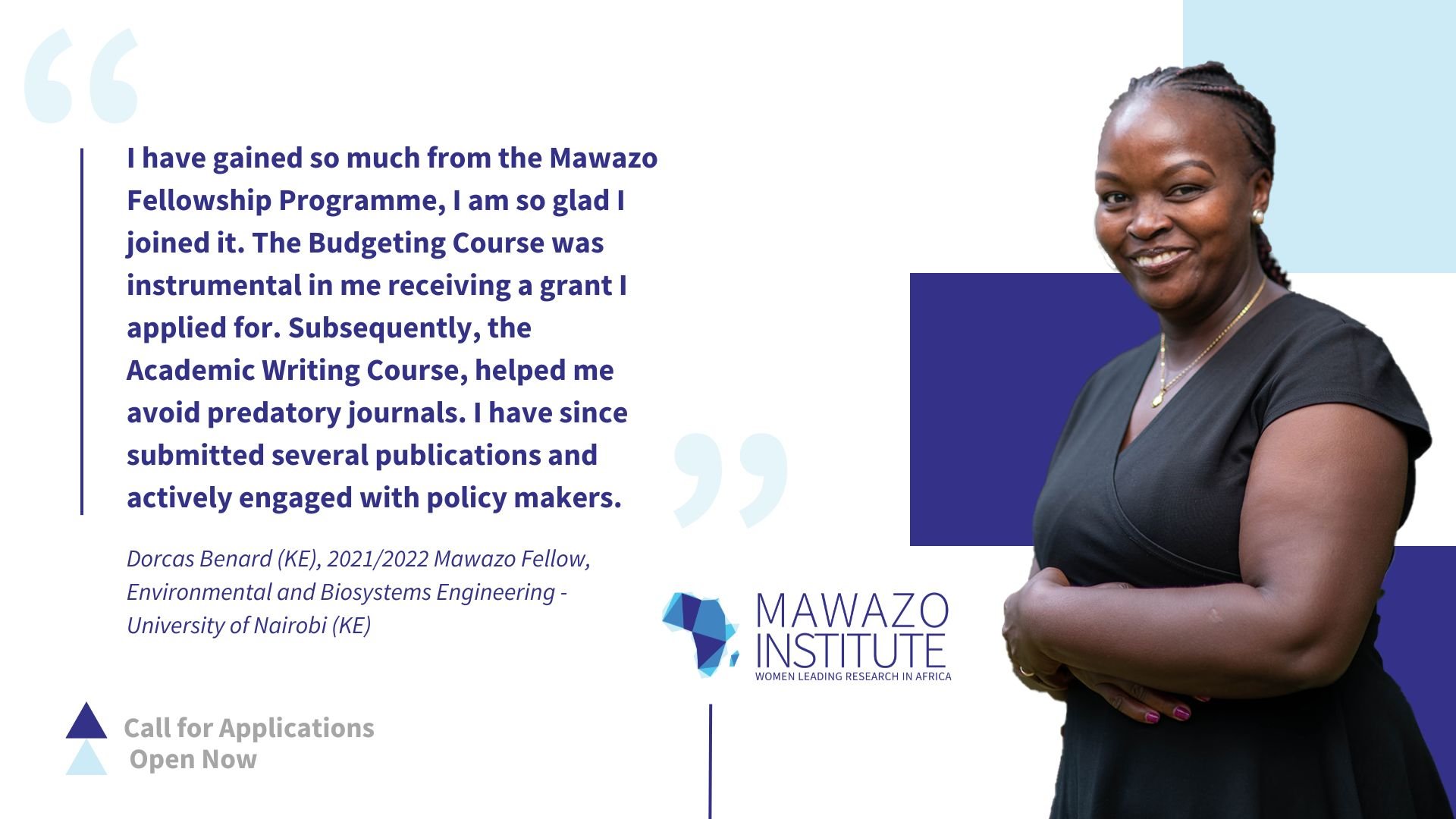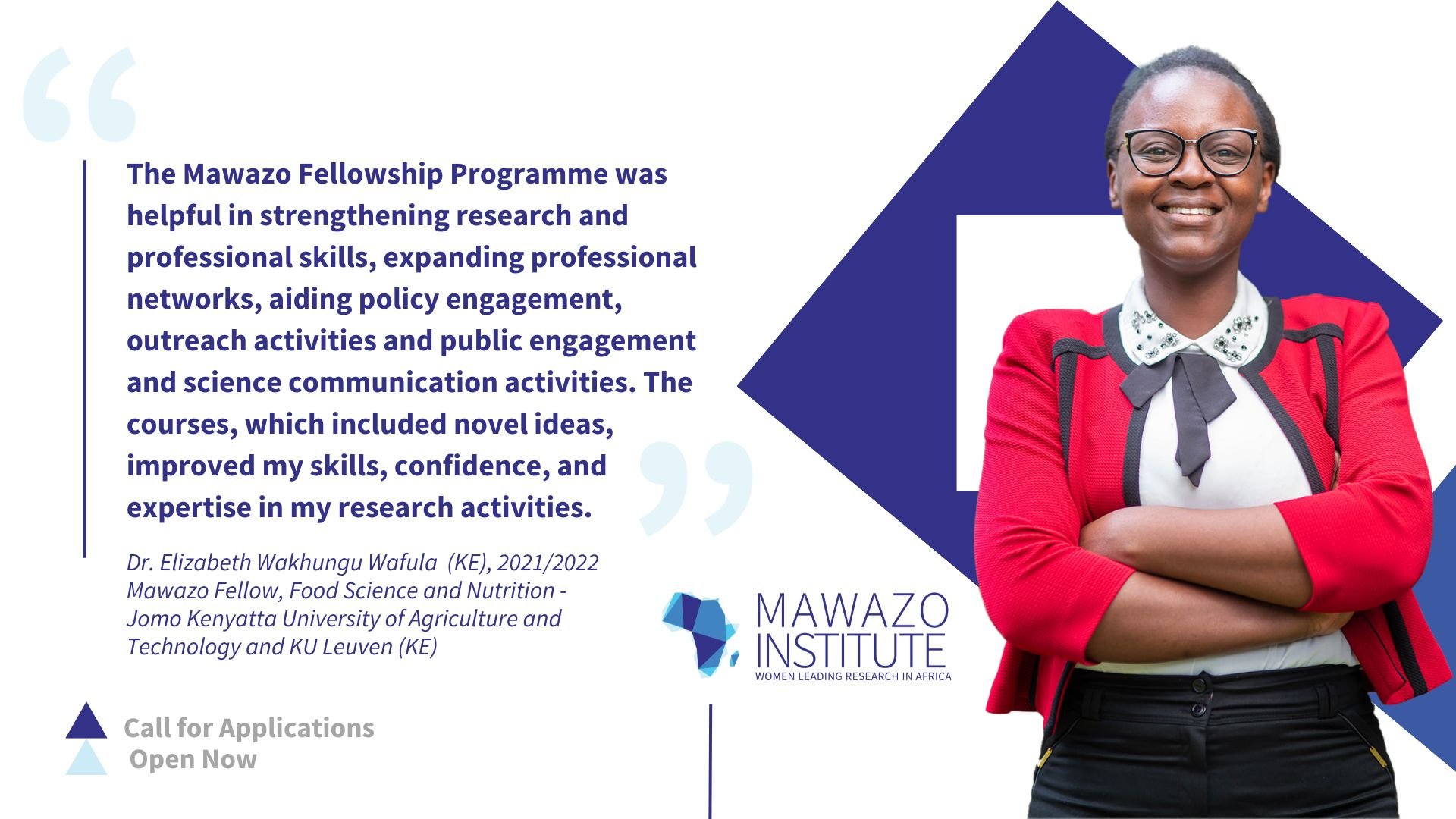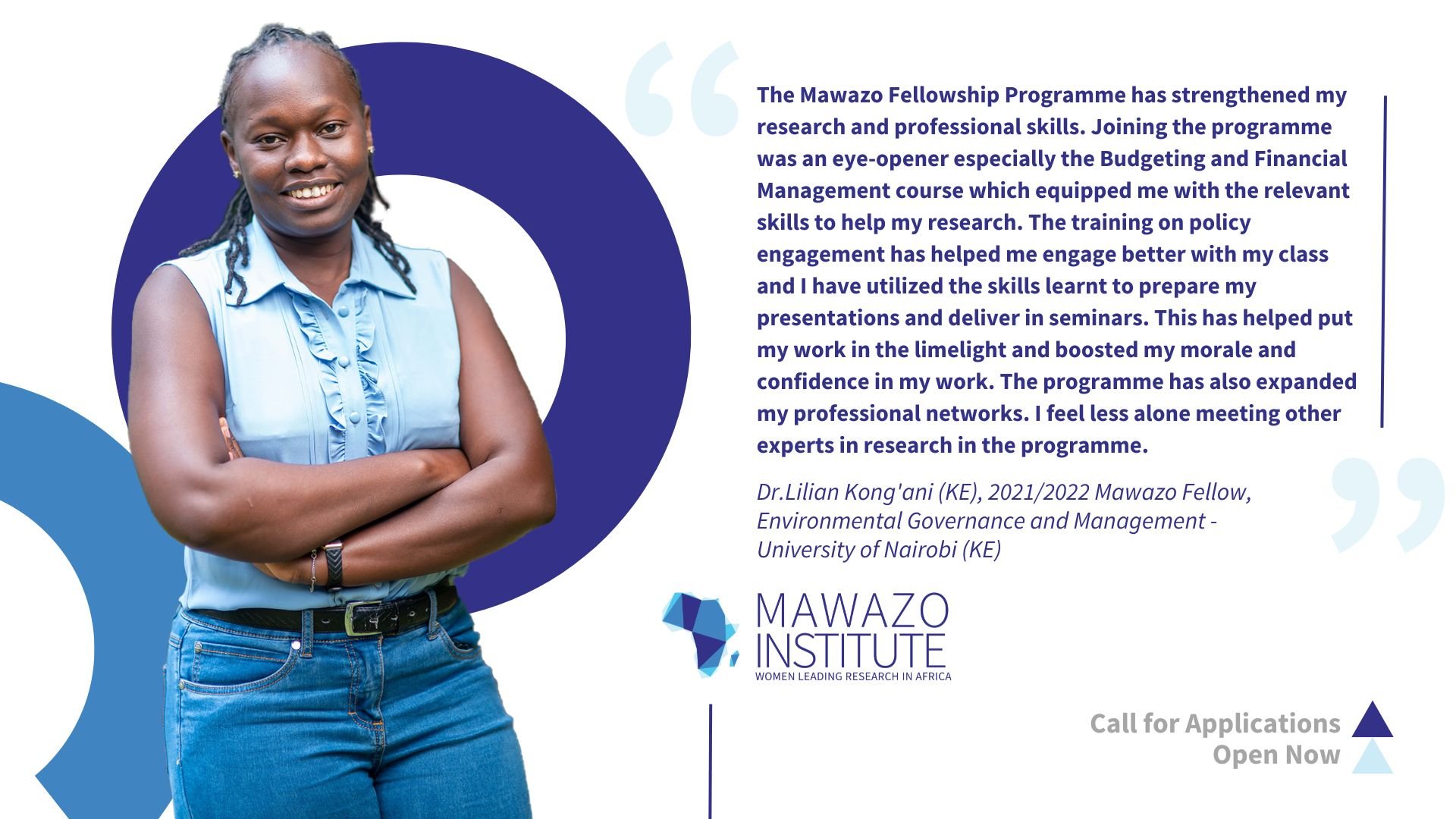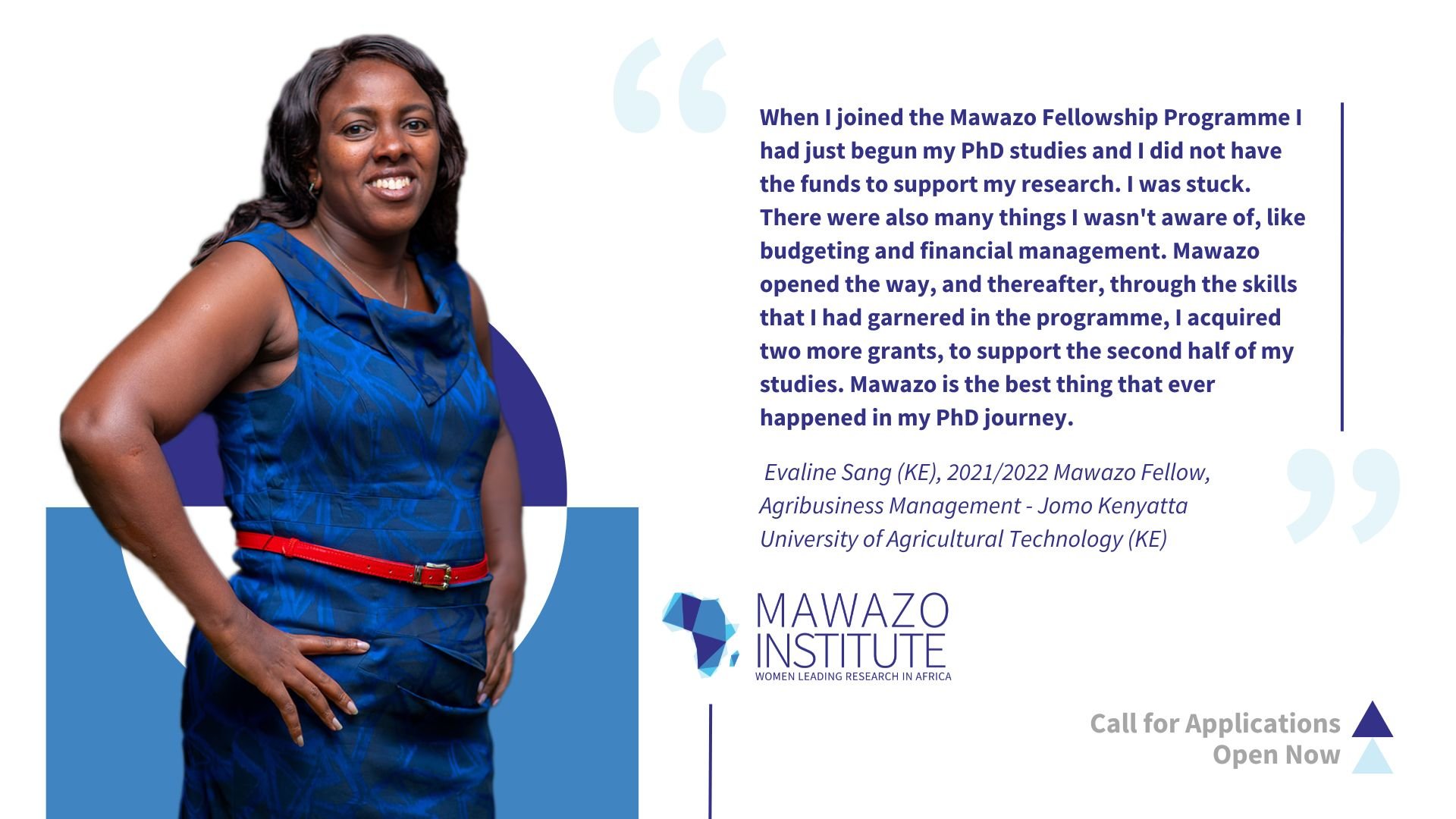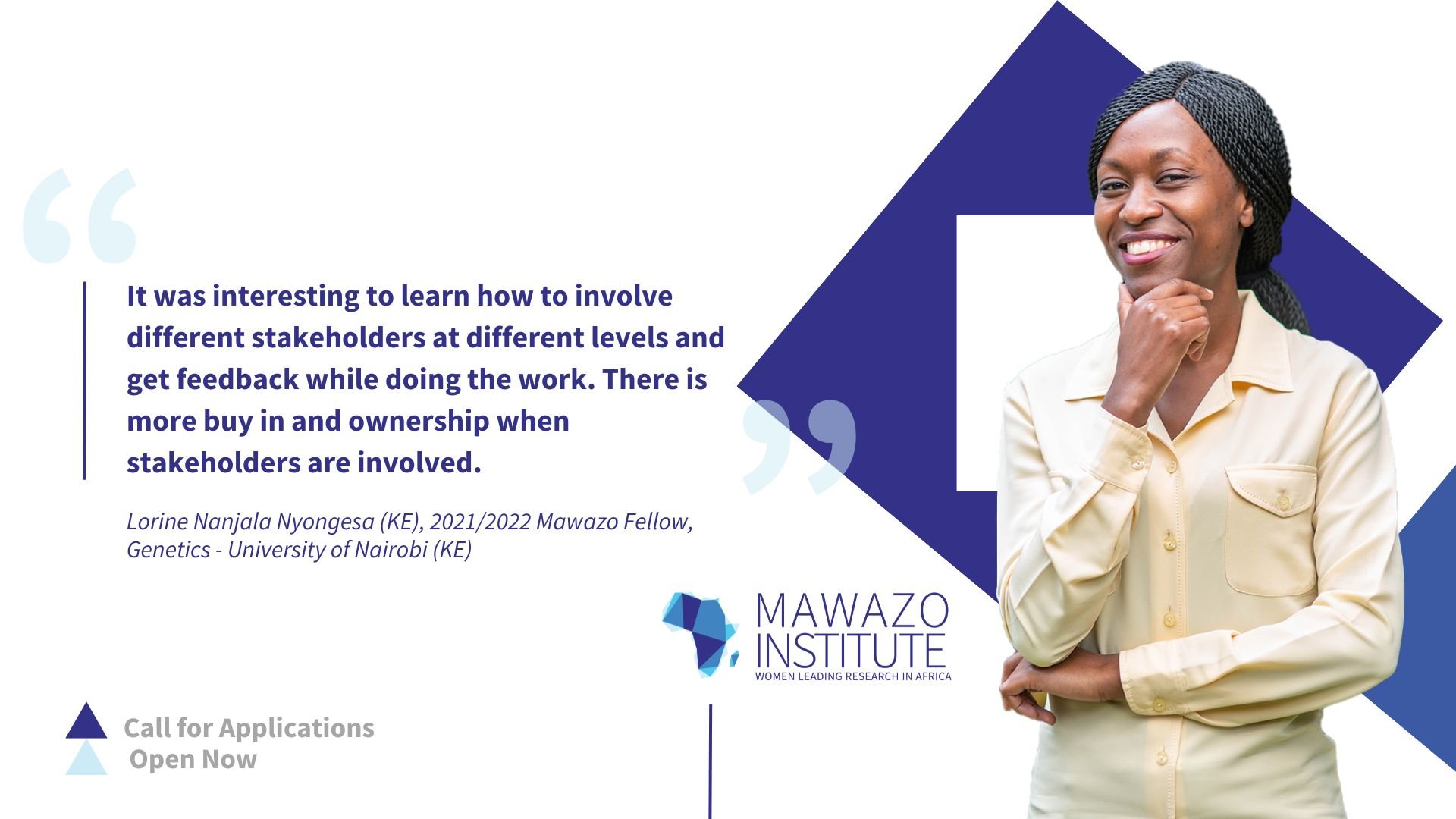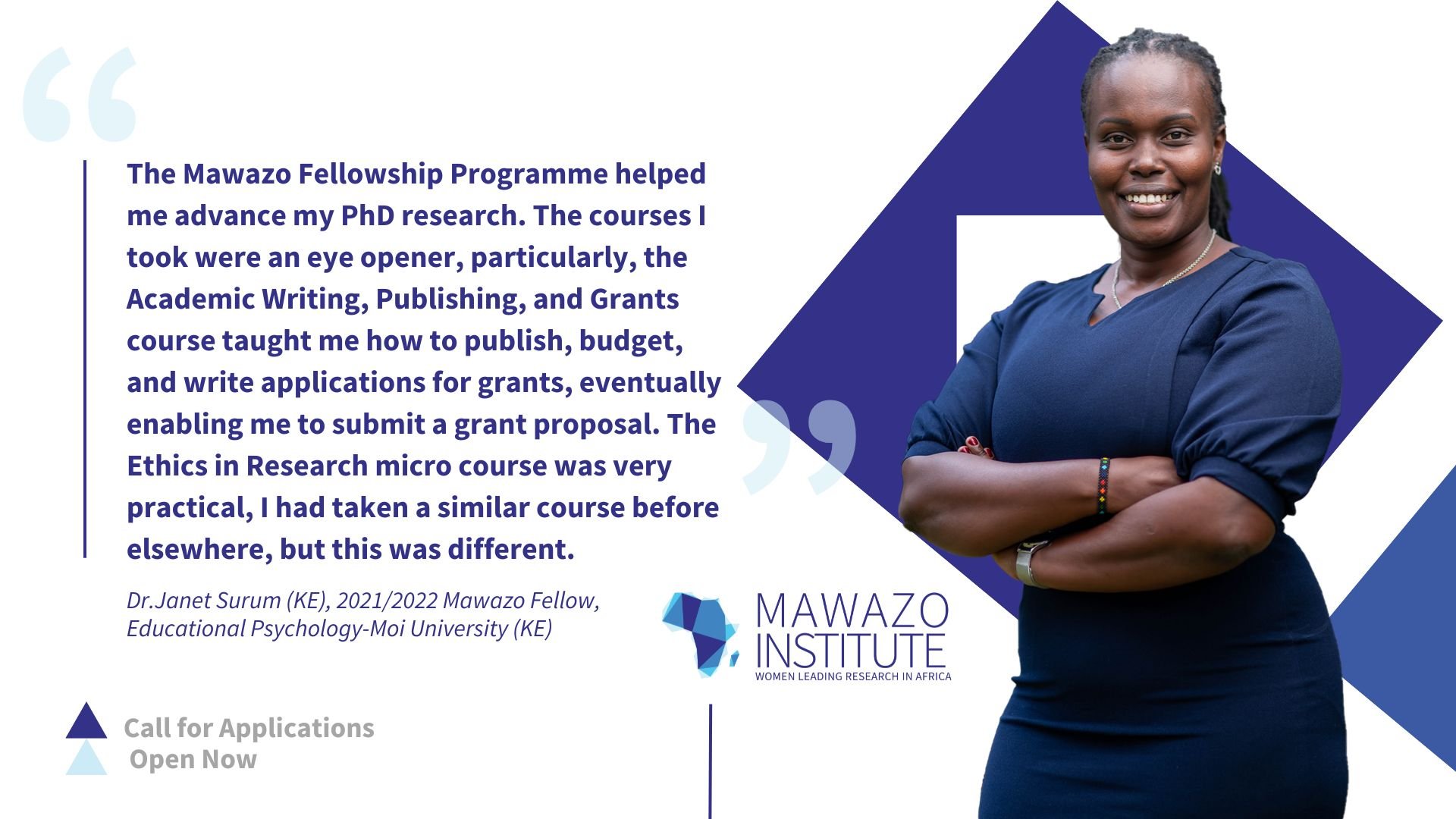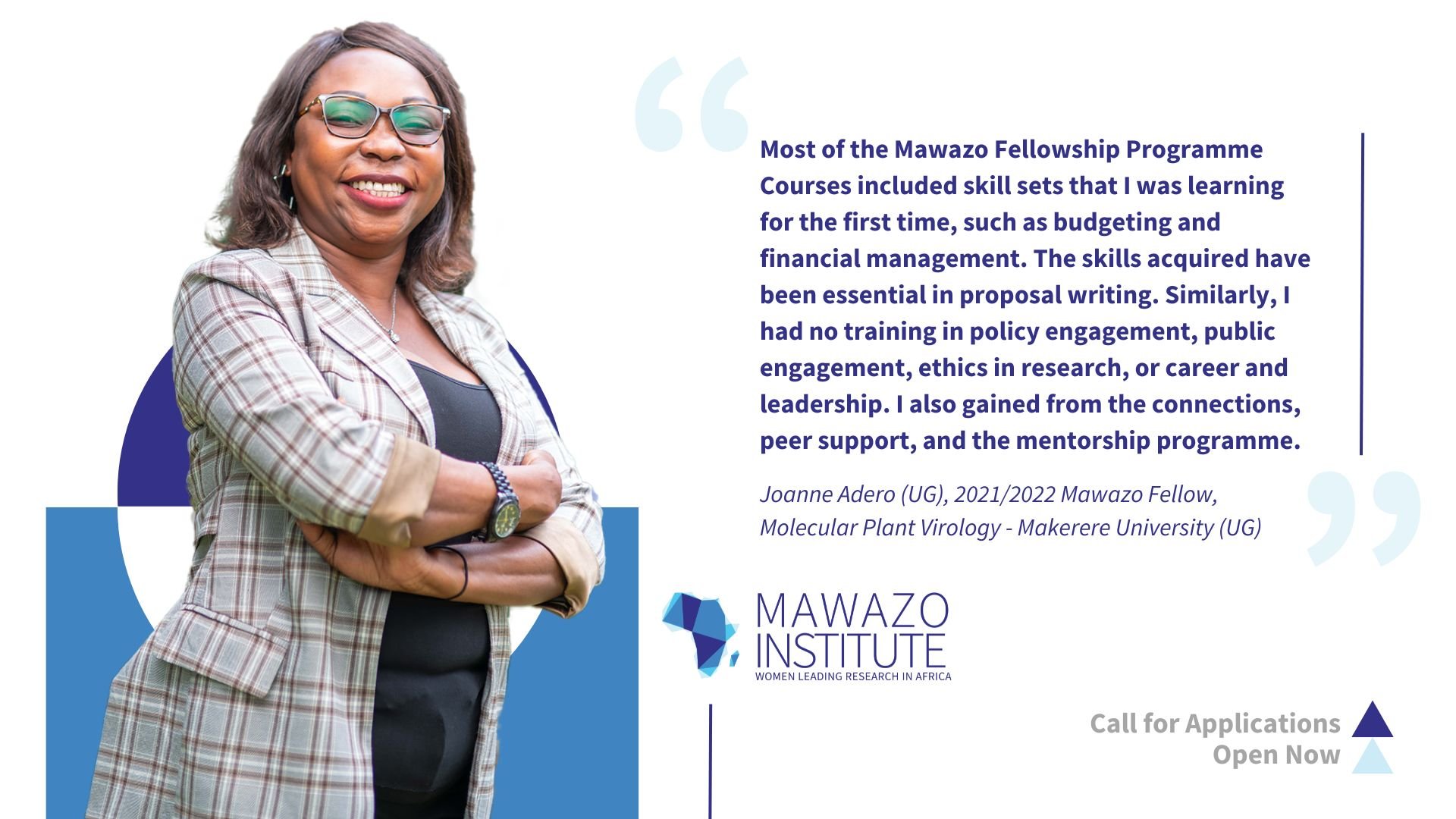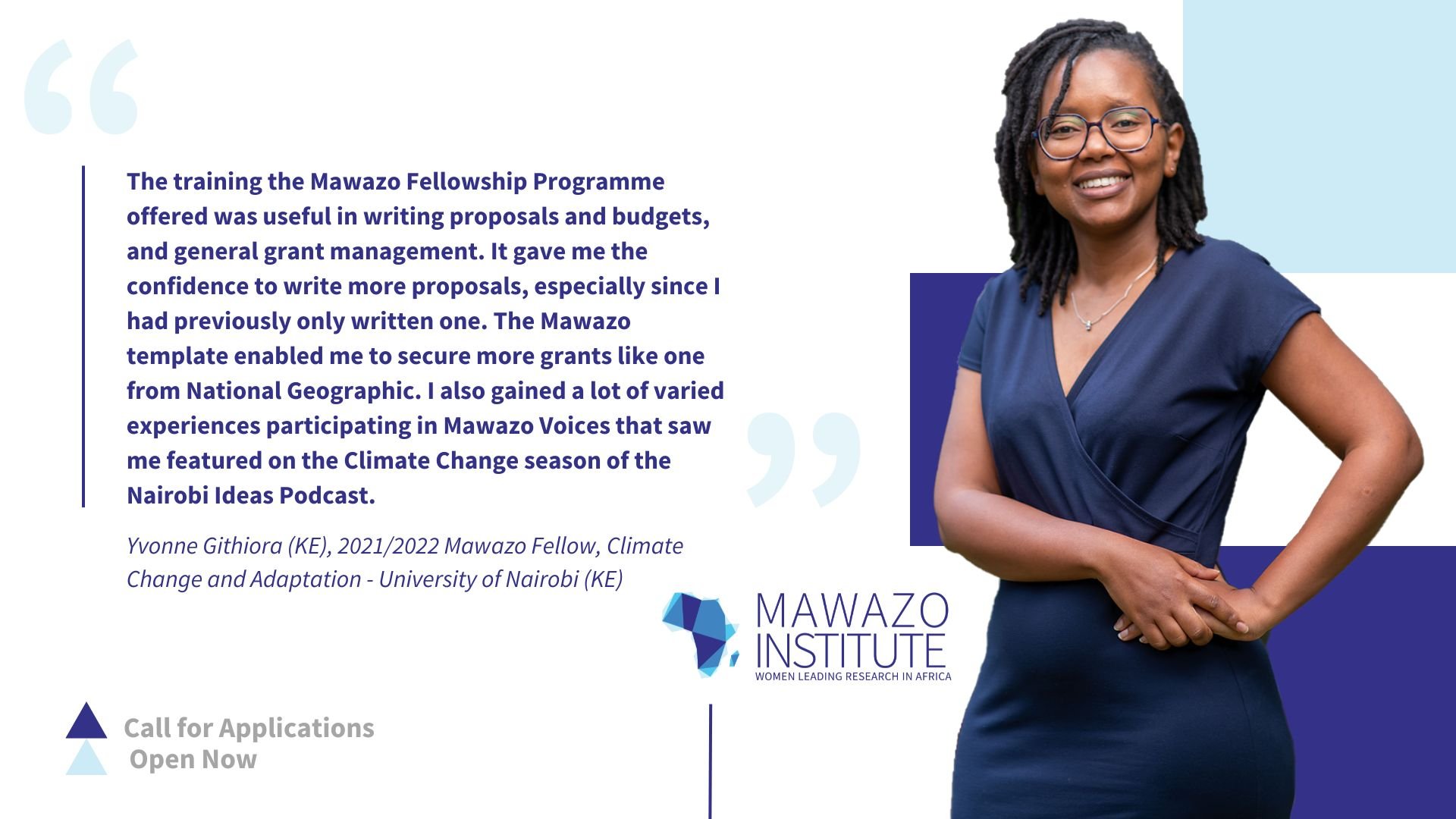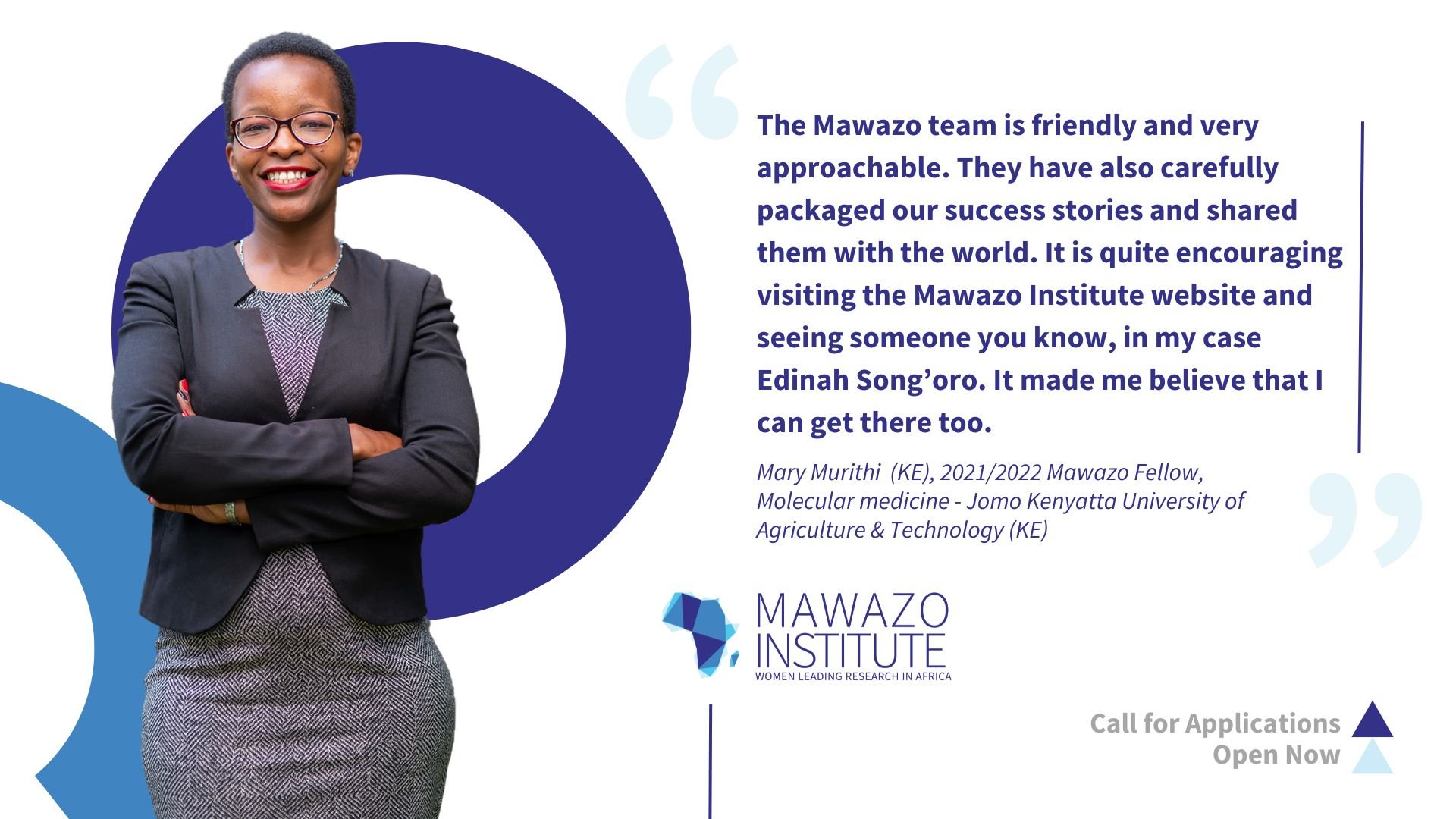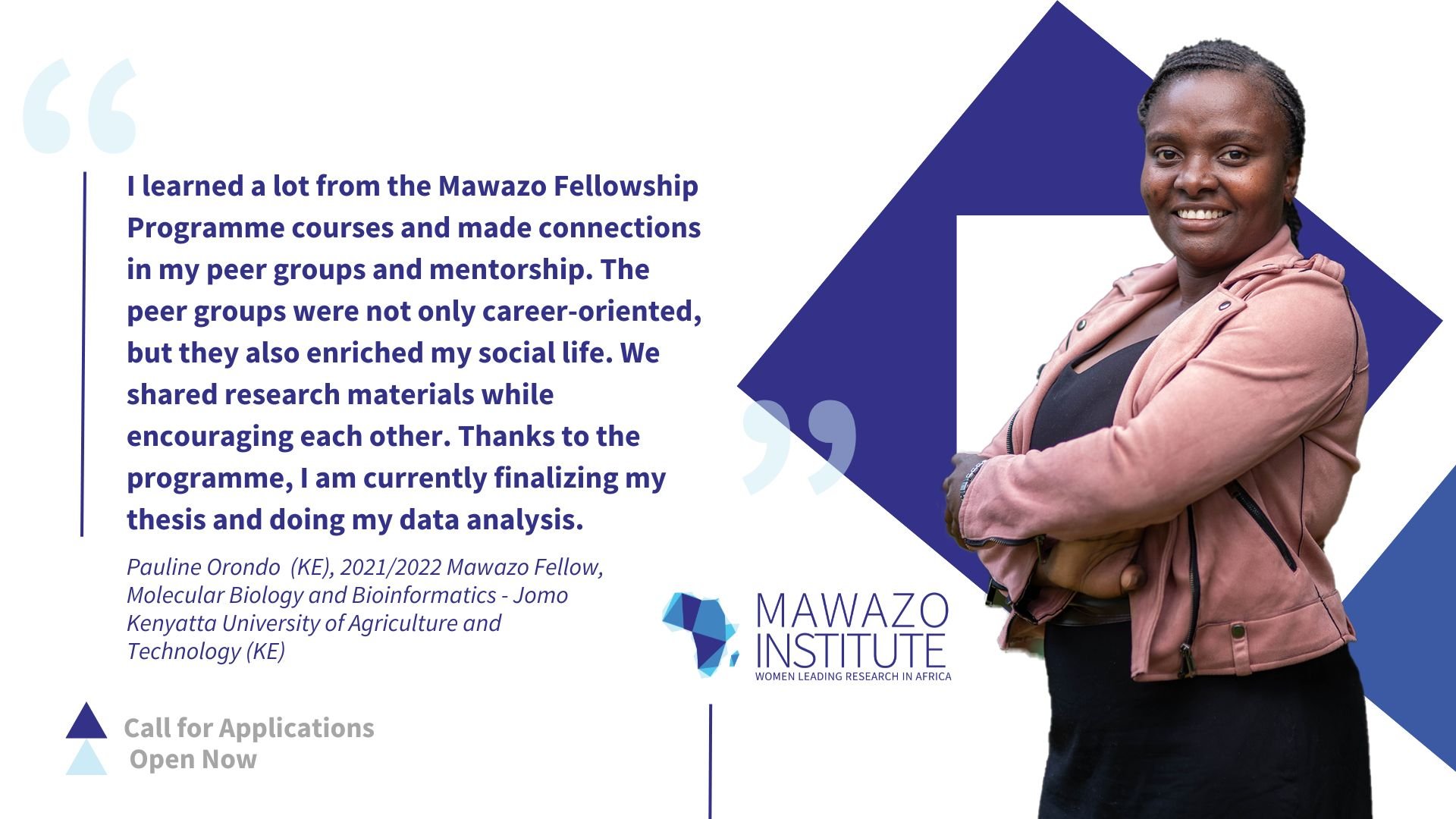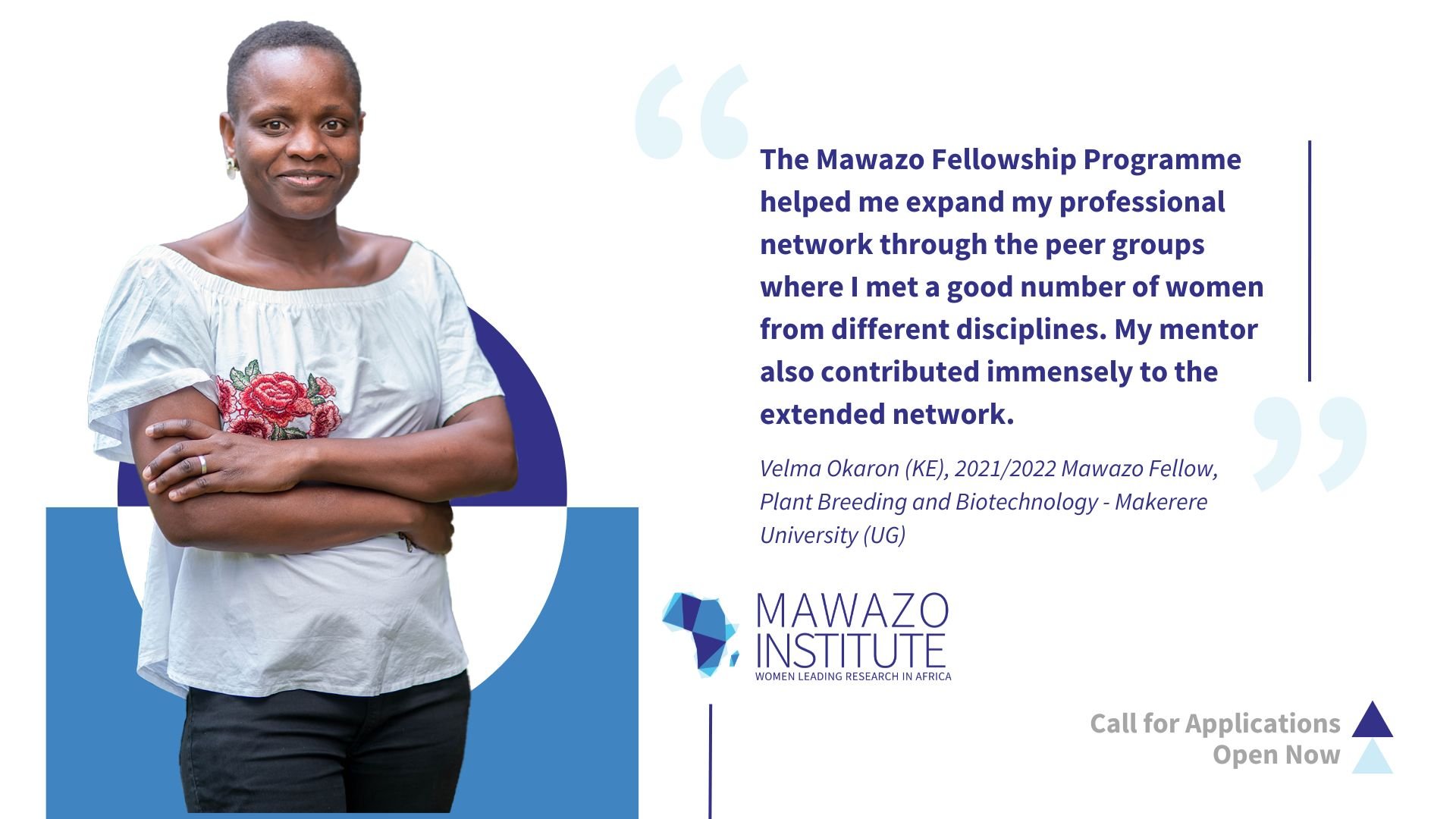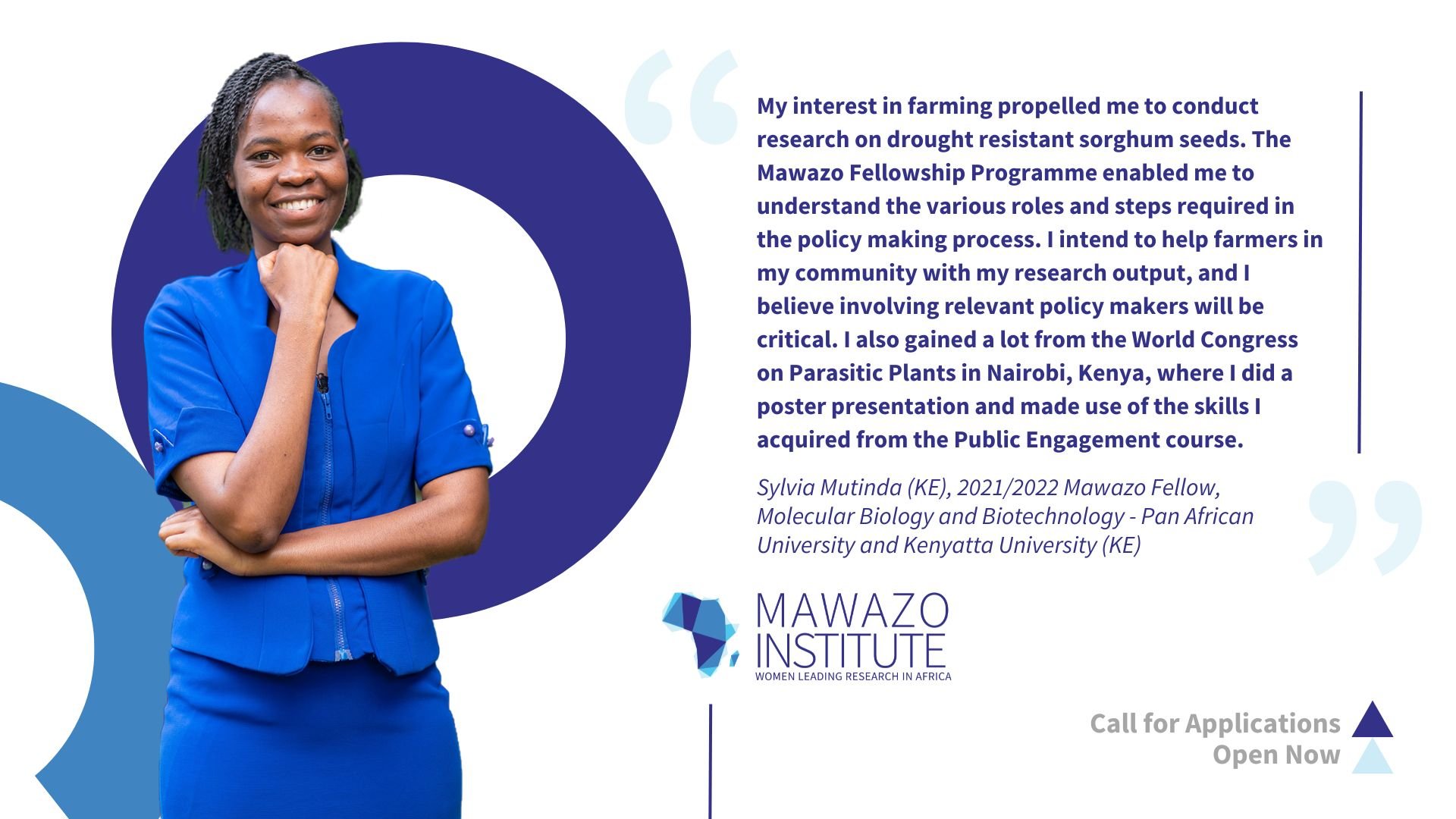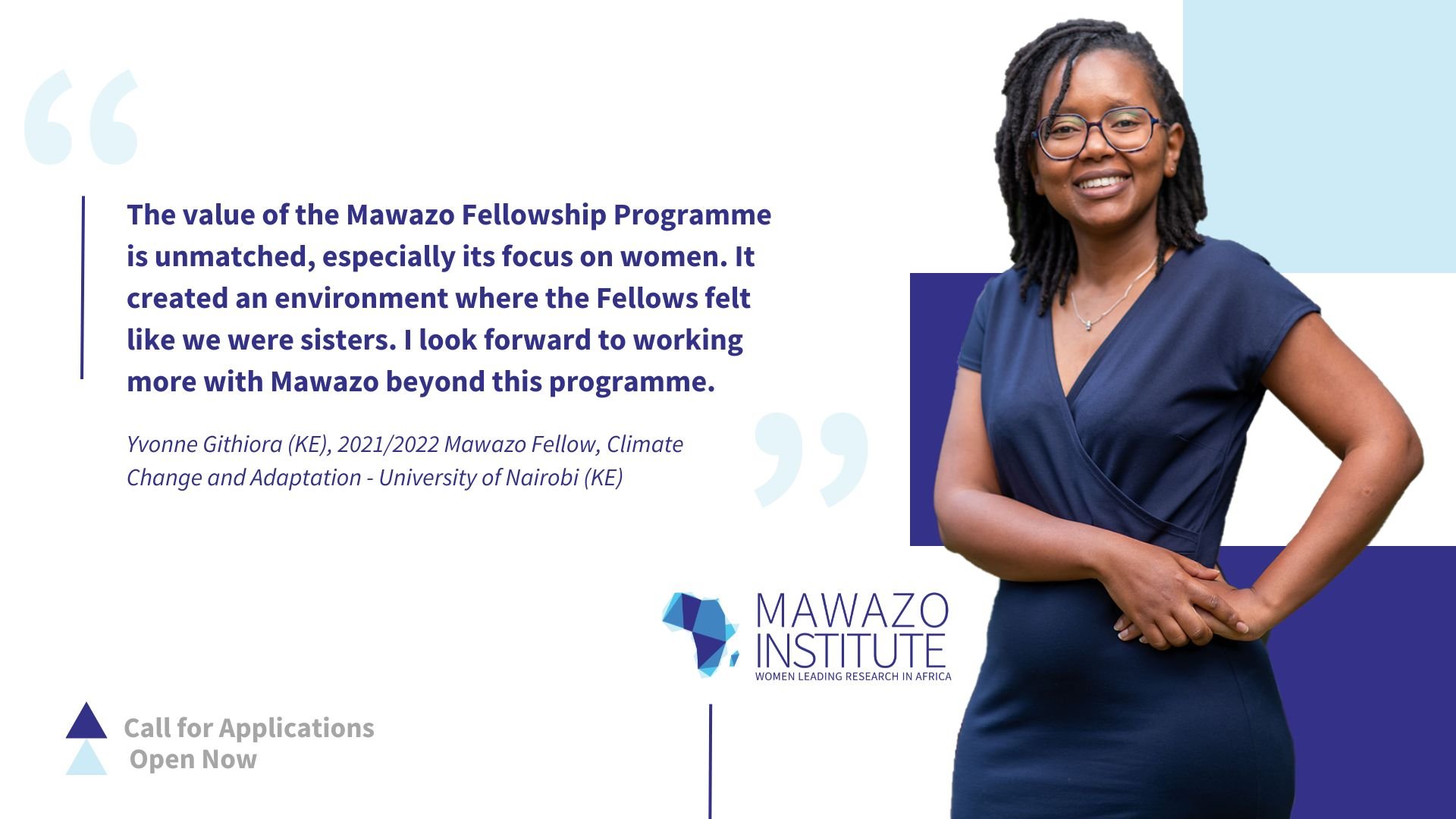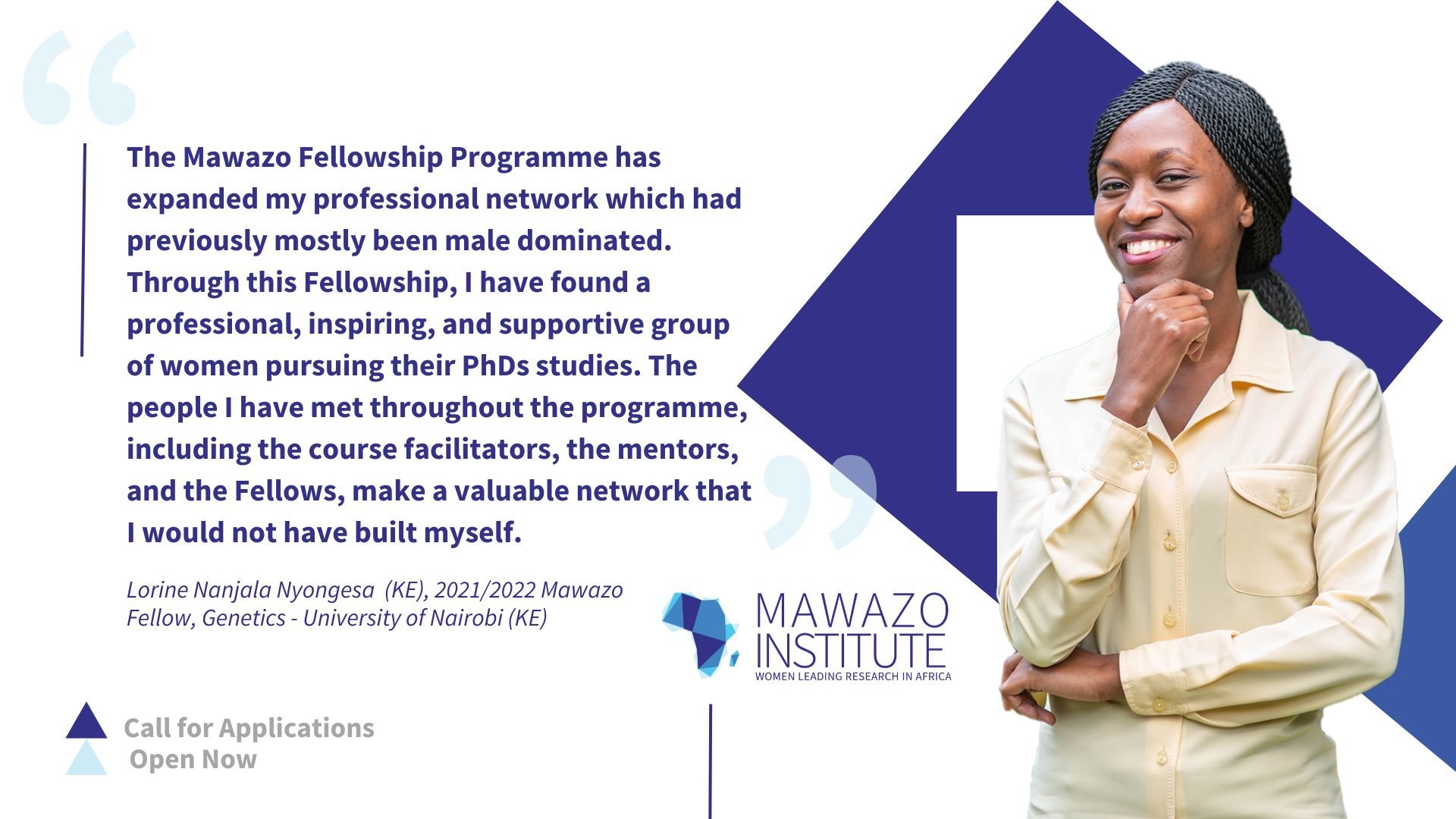Mawazo Fellowship Programme
This programme supports African women PhD students from across the continent working on emerging development issues and provides them with (1) virtual, on-demand training, (2) mentorship, and (3) access to funding that supports research activities, conference travel, research translation, and cross-sector collaborations.
The Mawazo Fellowship Programme is a 15-month, non-residential fellowship where Mawazo Fellows participate in a virtual training programme that features professional development courses designed by the Mawazo Institute hosted on our Mawazo Learning Exchange (MLEx) e-learning platform. Fellows also benefit from mentorship and networking to enhance their career progression, financial support for research activities, and platforms for policy outreach and public engagement that increase their visibility and potential for impact.
This programme is designed to build a network of African women experts who are poised to influence policy and public discourse in academia and beyond, increasing the application and implementation of practical, evidence-based ideas that drive Africa’s development.
All Fellows join our network of past Fellows and will continue to benefit from Mawazo’s support through its Mawazo Voices programme.
In our current cohort, the Mawazo Fellowship Programme is supporting up to forty (40) women who are pursuing their PhD studies at accredited universities across Africa.
While all eligible PhD students are more than welcome to apply, we encourage applications from those working in the following thematic areas:
● Agriculture and Food Security
● Business, Trade, and the Economy
● Climate Change, Natural Resources, and the Environment
● Education and Pedagogy
● Energy and Engineering
● Gender, Rights, and Governance
● Information and Technology
● Life and Health Sciences
● Mathematical and Physical Sciences
THE CALL FOR APPLICATIONS IS CLOSED.
For more information about our work and impact so far, please visit our website or download the 2022 Annual Report. To learn more about our inaugural cohort of Fellows, please view the 2021 Mawazo Fellows profiles.
-
In order to be eligible for the Mawazo Fellowship Programme, applicants must:
Be a woman (woman/women includes cisgender women and transgender women. We also welcome Assigned Female At Birth (AFAB) non-binary, AFAB gender non-conforming, other AFAB genderqueer individuals, who have historically been excluded from decision-making spaces)
Be a citizen of an African country
Have good command of written and spoken English
Be enrolled for their PhD at an accredited university in an African country
Have completed their course work (if applicable) and passed their departmental or graduate school proposal defence (i.e., in the dissertation/thesis phase of their PhD)
Demonstrate that their PhD research is related to African development and is relevant to a global, regional, national or subnational policy priority
Demonstrate that they have a “Big Idea” to transform Africa through their research ( By ”Big Idea” we mean an innovative research-based solution to help address Africa’s emerging societal challenges)
Demonstrate potential for leadership both within and outside academia, and a strong passion to leverage their expertise for impact in society
Be available to fully participate in the programme in 2023-2024
-
Mawazo Fellows will receive the following benefits:
Participation in Mawazo’s in-house virtual training and professional development programme, offered through the Mawazo Learning Exchange (MLEx) e-learning platform
Connections to expert and peer mentors through a structured mentorship programme, as well as exposure to leaders from academia, industry, government and other sectors
Funding for research activities with access to grants worth up to US$2,500
A stipend worth $500 for discretionary use
Data bundles worth $150 to help access the MLEx platform
Research and editorial support from the Mawazo team and our partners
Visibility via Mawazo Voices, our public policy and engagement, strategic communications, and strategic partnerships programme
-
Interested candidates are required to fill in and submit their applications via our online application portal. Applications will not be accepted by email or in hard copy.
Applications will be considered complete when the following are provided:
A completed online application form
A current 2-page CV
A letter confirming current enrollment in an accredited PhD programme
A letter confirming that you have completed your course work (if applicable) and passed your departmental defense
A recommendation letter from your PhD supervisor
A recommendation letter from a second referee
For instructions on how to use our online platform, complete your application and meet all the requirements required for consideration, please download the application guidelines here. For additional information with regards to the programme and the application process, please download our FAQs document here.
-
All applications will be reviewed by the Mawazo Institute staff and a committee of external expert reviewers.
Successful applicants will demonstrate that they can do the following:
Meet all eligibility requirements
Identify a research problem which has important implications for African development and is linked to a global, regional, national or sub-national-policy priority
Demonstrate that their PhD research is academically rigorous and addresses a unique and important gap in the field
Demonstrate that their PhD research has clear objectives and is appropriately designed for the research questions being asked
Write a summary of their PhD research which is clear, concrete, and accessible to scholars outside their own field
The Mawazo Institute is committed to non -discrimination in the application review process
-
The due date for the application is 11.59 pm EAT on 12 March 2023.
Applicants will receive a final decision on the status of their application in late April 2023 and the fellowship year will commence shortly afterwards.
For questions pertaining to the application portal, please contact our programme staff on fellowship@mawazoinstitute.org.
-
1. When will the call for applications be open?
We have a current call for the 2023 Mawazo Fellowship that opens on Monday 30 January 2023. This call will close on Sunday 12 March 2023 at 11:59 pm (EAT). To check eligibility and make an application, you may click on the Eligibility Criteria Tab above.
2. How do I apply for the Mawazo Fellowship Programme?
Please click on the Application Requirements Tab above for a detailed guide on how to submit your application.
3. Can I apply on paper instead of the online application?
No. We strongly advise that you apply through the provided SurveyMonkey Apply link.
4. How is my application reviewed?
The Mawazo Fellowship Programme has a reviewing committee made up of Mawazo Institute team members as well as external, independent reviewers that consider the merits of each application.
5. Can I check the status/progress of my application?
Yes. A notification is sent to the applicant upon submission of the application. Once the review process has been completed, we will be in touch with all applicants via email to inform them whether or not they have been successful.
6. If my application is unsuccessful, will I get customized feedback?
No. Due to the volume of the applications we receive, we are unable to give tailored feedback to applicants who have been unsuccessful. Where possible, we will give general feedback to applicants who showed strong potential in their applications.
7. May I apply in another year if my application is unsuccessful?
Yes. As long as you meet eligibility criteria and follow the application requirements (listed in previous tabs above), you are welcome to apply for the Mawazo Fellowship Programme again. However, previously successful candidates cannot apply.
8. Can I submit more than one application?
No. You can only make one application for the 2023 Mawazo Fellowship Programme.
9. Can I make a joint application?
No. We only accept one application from one applicant at a time as we are keen to fund individual PhD research projects, and not joint projects of any kind.
10. Is there someone I can contact should I have any issues signing into and submitting my application?
Yes. Please reach out to the Mawazo Programmes team at fellowship@mawazoinstitute.org if you have any challenges completing your application.
11. Does my research project need to focus on an area of African development to be eligible for the Mawazo Fellowship Programme?
Yes. We encourage our applicants to demonstrate that their research is related to African development and is relevant to global, regional, national or subnational policy priorities.
12. I missed the application deadline. Will my application still be considered?
No. Unfortunately, we are unable to process applications submitted after the deadline. We encourage applicants who have missed the deadline to be on the lookout for future calls.
13. Is there any fee to apply for the programme?
No. The Mawazo Institute never charges any fees to its applicants.
14. Can I apply to the Mawazo Fellowship Programme if my project is lab-based?
Yes. We accept proposals for lab-based research projects.
15. Is there an age limit for the Mawazo Fellowship Programme?
No. We do not have an age limit. Our programme is targeted at early-career women researchers which we define to include researchers who are current PhD candidates.
16. I have just started my PhD studies; can I apply to the Mawazo Fellowship programme?
No. To qualify for the Mawazo Fellowship Programme applicants must have completed their coursework, if applicable, and passed their departmental or graduate school proposal defense.
17. Is the Mawazo Fellowship Programme open to researchers outside Kenya?
Yes. African women who are pursuing PhDs in any field at an accredited African university are invited to apply.
18. I am based at an institution in a non-English speaking African country. Can I still apply?
Yes. Whilst all training and networking will be conducted in English for the incoming cohort, you can apply as long as you have a good command of written and spoken English. For future cohorts Mawazo is actively working towards translating its training material and identifying partners and mentors who are fluent in Arabic, French, and Portuguese to ensure the representation of the entire continent within our network of African women researchers.
19. I am a research fellow who has secured funding to conduct my research in Africa. Can the Mawazo Institute act as my host institution?
No. We do not have the capacity to act as a host institution.
20. As a Mawazo Fellow, can I apply for more than one Mawazo Fellows Fund grant?
Yes. Fellows can apply for up to four grants (one per quarter) worth up to US$2,500 each. Funding each grant cycle is competitively awarded after a thorough selection procedure and is not guaranteed.
21. Does the Mawazo Institute provide travel grants for conferences?
Yes. Mawazo Fellows have access to flexible grants of up to US$2,500, provided via the Mawazo Fellows Fund, to support research activities, conference travel, specialised training, research translation, and cross-sector collaborations.
22. Does the Mawazo Institute offer funding for tuition Fees?
No. Presently we do not offer funding for tuition fees. However, Mawazo Fellows may be eligible to receive funding for tuition fees in extenuating circumstances, and at the Mawazo Institute’s discretion.
23. Where can I find more information about the previous Mawazo Fellowship Programme recipients ?
You can find out more about previous Mawazo Fellows here.
24. What if I have more questions about the Mawazo Fellowship Programme?
If you have further questions about the Mawazo Fellowship Programme, please contact our programme staff at fellowship@mawazoinstitute.org.
Testimonials
